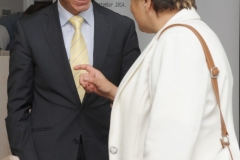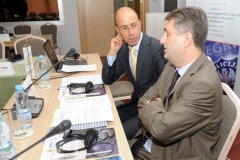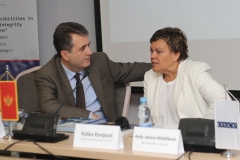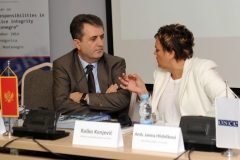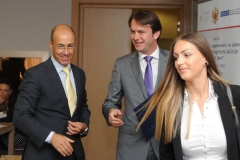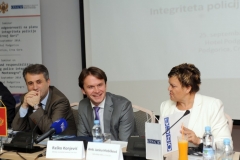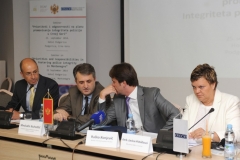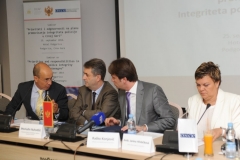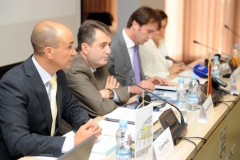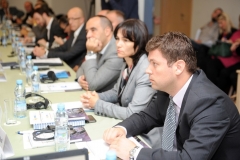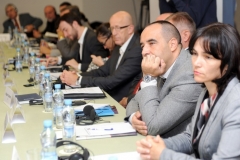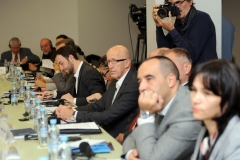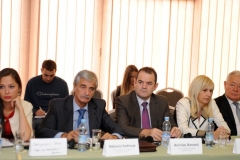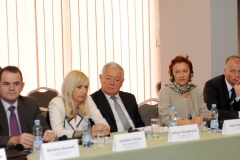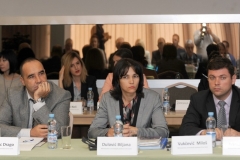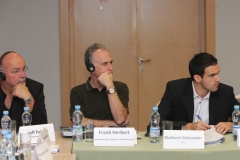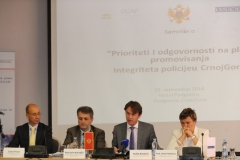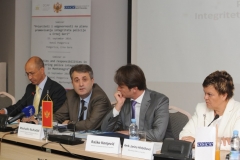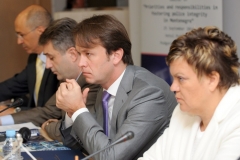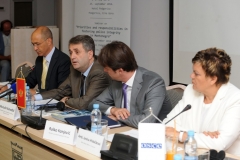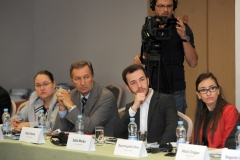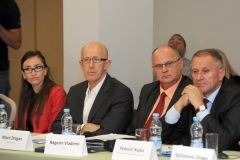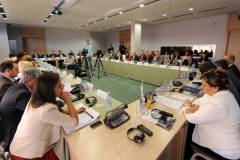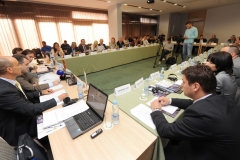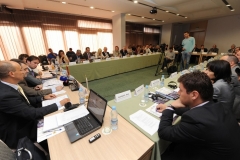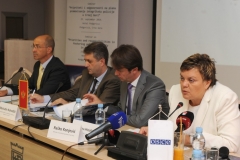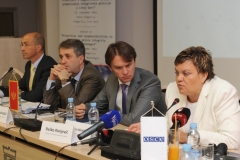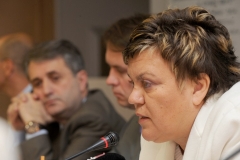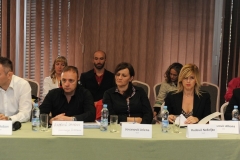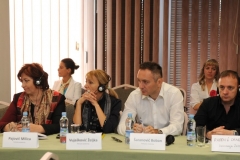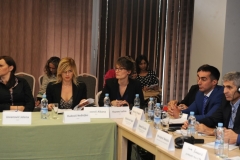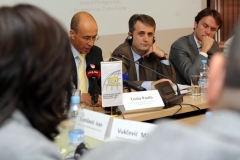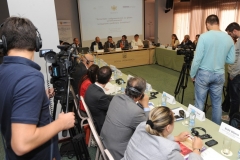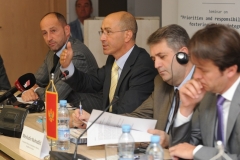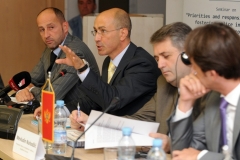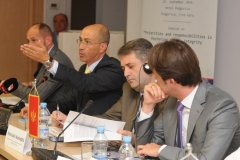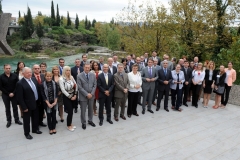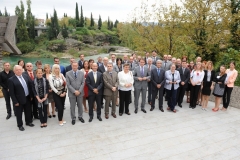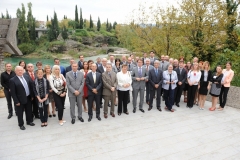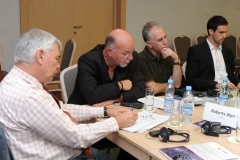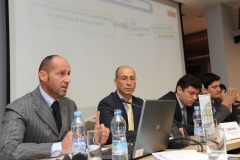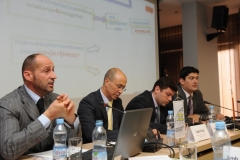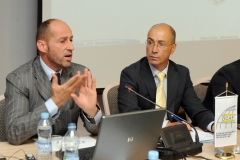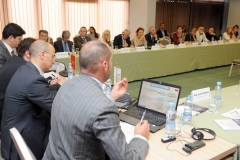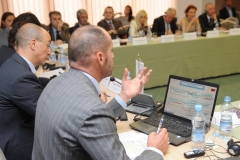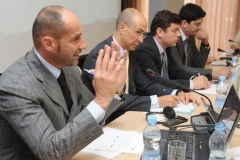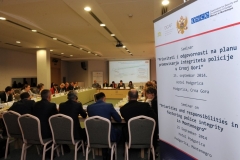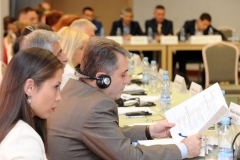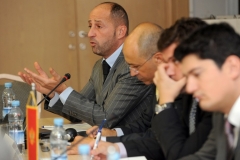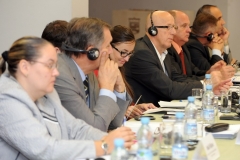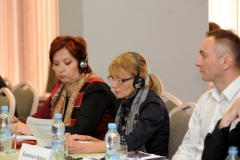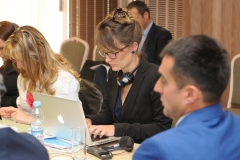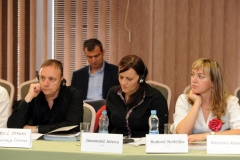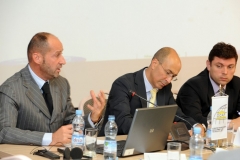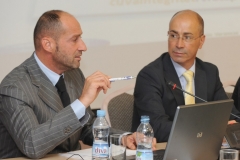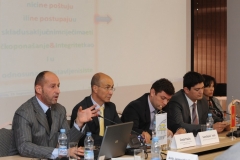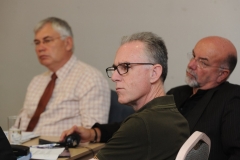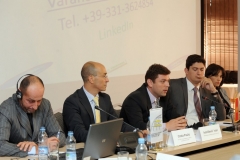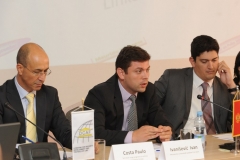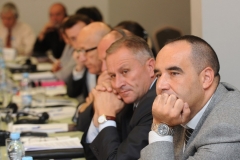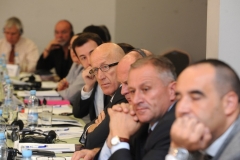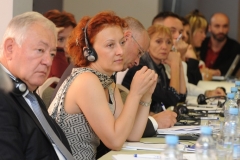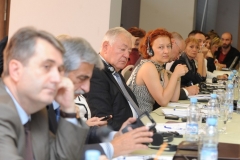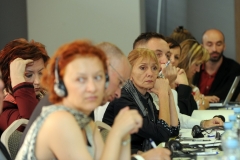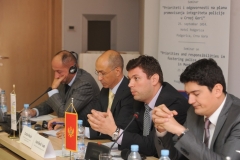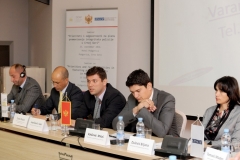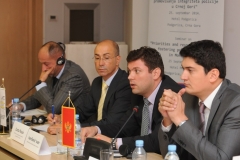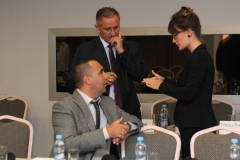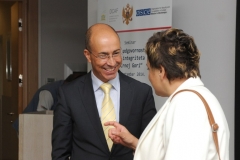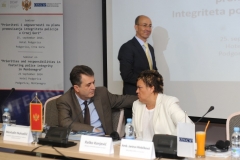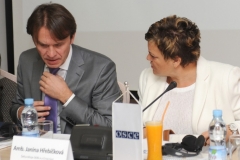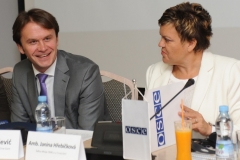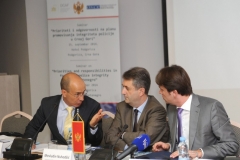European Commission’s Progress Reports In Numbers
In comparison to the previous year, Montenegro’s progress in fight against corruption was weaker, while no significant breakthroughs were made in nine chapters of membership talks with the European Union (EU).
The most recent progress report on Montenegro, issued by the Euroepan Commission, warns the country that the current pace of fulfilling the EU conditions, especially with regards to anti-corruption policies, does not ensure that the country will reach necessary standards for joining the EU any time soon.
“Corruption remains prevalent in many areas and continues to be a serious problem, requiring effective implementation of deep and lasting reforms”, reads the report, which assessed Montenegro’s efforts against the corruption as weaker than in the previous year.
In other words, while in 2013 the European Commission recognised “some progress” within the Chapter 23, on Judiciary and Fundamental Rights, this year the progress was assessed as “uneven”, with the limited progress in anti-corruption policies and some progress in judiciary reform and protection of fundamental rights.
It is interesting that, overall, Montenegro’s progress was assessed better than in the last year, but weaker than in 2012, the year which marked launching of accession negotiations with the EU.
If the formulations employed by the European Commission for assessing the specific chapters, such as no progress, little progress, limited progress, further progress, some progress, progress and good progress, are translated into the values on scale from 0 to 6, number of chapters with the good, some and further progress is larger than in 2013.
While assigning values to these formulations, Institute Alternative (IA) employed a scale used by the Ministry of Foreign Affairs and European Integration for interpretation of European Commission’s remarks.
In doing so, we made no difference between the remarks and state of the art in each of the specific fields. We have also made no difference between the chapters which are opened and chapters whose opening is still pending.
However, opening of chapters does not necessarily means stronger progress, as demonstared by the case of the most demanding Chapter 23, but also by the Chapter on Company Law, whithin which a little progress has been achieved.
Two years in a row, Montenegro made no progress with regards to fisheries. Also, this is the third year that we have achieved only little progress in enivronmental protection.
In comparison to 2013, progress in external relations, free movement of workers and public procurement was also made on a slower pace.
Press relelase: Protect the rights of citizens through the Law on National Security Agency
Amendments to the Law on National Security Agency, which are now in parliamentary procedure, represent an opportunity to further standardize the work of the Agency and thus improve the protection of citizens’ rights. Priority issues that need to be further regulated are the following: destruction of citizens’ data which is not of security character, security checks performed in the process of obtaining citizenship, and internal control of the work of NSA.
These are some of the suggestions for further improvement of the legal framework for the NSA that Institute Alternative has submitted to the Security and Defence Committee.
Bearing in mind that the storage of personal data in the secret files represents a violation of the right to respect for private life, excessive collection of personal data needs to be reduced. Therefore, we recommended that the Amendments to the Law on National Security Agency prescribe the obligation of the NSA to submit the collected data to the Supreme Court following the application of secret surveillance measures. The Supreme Court would evaluate the legality of the measures applied. This means that immediately after „reading by the judge“ part of the material not related to the reasons for undertaking measures or related to other types of personal data that is not of security character would be destroyed, while the rest of the material would be kept in the records.
Additionally, we deem necessary to legally regulate all issues related to security checks performed in the process of application for citizenship. Specifically, since the details of this procedure are not stipulated by the law, an opportunity to standardize the right to remedy of persons who have received a negative opinion was not taken. Persons who have received negative opinion after undergoing security checks should be given the right to familiarize themselves with the collected material on the basis of which the negative opinion is given, as well as the opportunity to challenge it.
Practice has shown that the security checks in the process of application for citizenship need further standardization because of their direct effect on the lives of citizens. However, there are numerous types of security checks and, therefore, adoption of a special law on security checks modeled on the laws in comparative practice needs to be initiated.
IA has pointed out to unsatisfactory results of internal control of the work of NSA in 2012. The chief inspector that is responsible for the internal control of the work of this authority and that submits reports to the Government on the inspection conducted, by 2012 has not found an illegal application of secret surveillance measures or other forms of abuse, and have also failed to submit reports to the Government and to director of the NSA. Therefore, the Law on NSA should stipulate the obligation of submission of annual reports on the work of the Internal Control to the Security and Defence Committee. This would increase the pressure of the Parliament on the Internal Control to continuously exercise supervision and assist in initiating criminal proceedings against officials who exceeded their authority and broke the law.
It is especially important to delete the provision of the Law on NSA which limits the individual right of MPs, members of the Security and Defence Committee, to seek data and information from the NSA. In this manner, this Law would be harmonized with the Law on Parliamentary Oversight. Additionally, IA has submitted recommendations to the Parliament which relate to informing citizens about the measures that have been applied without a prior written request.
Dina Bajramspahić
Public Policy Researcher
Our suggestions of Amendments to the Law on National Security Agency
IA’s suggestions for the Bill Amending the Law on National Security Agency
The amendments bring more clarity and precision in defining competencies of the National Security Agency (NSA) and we are particularly pleased to learn that our recommendation from 2012 has been fulfilled. This recommendation stated that the provision related to “the supervision of electronic communications and postal items” should be formulated more precisely, so that it explains what the surveillance of electronic communications covers. Because of its vagueness, it was not clear whether the NSA seeks approval from the Supreme Court, for instance, to access phone records, IP addresses of Internet users, and the user’s location. It is also a good solution to restrict access to the phone records to three months, with the possibility of extension.
However, there is still room for further improvements and these amendments should be used for further standardization of the work of the NSA. On the basis of previous work in this area, we submit to the members of the Security and Defense Committee several priority issues, related to:
- destruction of data,
- internal control of the NSA,
- process of informing citizens,
- control of opinions of the NSA in the process of obtaining citizenship.
Belgrade Security Forum: Contribution of NGOs to key reforms
 Research Coordinator Jovana Marović participated in the Belgrade Security Forum, at the special side event Visegrad Experience for the Western Balkans: NGO Support for Key Reforms.
Research Coordinator Jovana Marović participated in the Belgrade Security Forum, at the special side event Visegrad Experience for the Western Balkans: NGO Support for Key Reforms.
Jovana spoke about the challenges of participation of NGOs in the negotiation process, with special emphasis on the limitations in the work of NGO representatives within working groups. The focus of her presentation was also on the current reforms in the area of fight against corruption.
The publication “Civil Society in the European Integration Process in the Western Balkans”, dedicated to the framework for CSOs’ participation in the negotiation process, was presented at the panel as well. The report is co-authored by 20 experts from the civil society in the Western Balkans, directly involved in the negotiation process.
Besides Jovana, the panelists were:
- Marko Savković, Belgrade Fund for Political Excellence;
- Goce Kocevski, Macedonian Young Lawyers Association;
- Tomasz Żornaczuk, Polish Institute for International Affairs (Moderator).
More information on the panel can be found at the BSF website.

Belgrade Security Forum: Peace Support Operations and Civilian Capacities of the Western Balkans
Our researcher, Marko Sošić, took part in the Belgrade Security Forum at the special side event on civilian capacities for peace support operations.
The panel was an opportunity to publicly present the results of the first phase of the regional project “Civilian Capacities for Peace Operations – Case of the Western Balkans”, which we implemented in cooperation with the Belgrade Centre for Security Policy (BCSP) and the Norwegian Institute of International Affairs (NUPI). The project is supported by the Norwegian Ministry of Foreign Affairs.
The issue of civilian contribution to peacekeeping missions involves sending non-military personnel in international missions, which could include police officers, medical personnel, judicial experts, civil servants in general, and members of civil society and experts outside the public administration, with the mediation of the state.
Panelists emphasized the advantages of contribution to peacekeeping missions for the countries of the region, but also for the areas that are subject of the missions. They highlighted the problems and underutilization of this type of contribution in all countries of the region, of which some have done more than others (such as Croatia), while others are at the very beginning of formulating public policy in this area (Montenegro).
Besides Marko, the panelists were:
- Gordan Bosanac‚ Centre for Peace Studies, Zagreb
- Emsad Dizdarević‚ Centre for Security Studies, Sarajevo
- Foto Duro‚ Institute for Democracy and Mediation (IDM), Tirana
- Andreja Bogdanovski‚ Analytica, Skopje
- John Karlsrud‚ Norwegian Institute of International Affairs (NUPI)
- Marko Milošević, Belgrade Centre for Security Policy (Moderator)
At the following links you can read short reports on the state of affairs in the countries that are the subject of this project: Serbia, Bosnia and Herzegovina, Croatia, Macedonia, Albania, while our report on the review of the situation in Montenegro is available here.
Fourth Belgrade Security Forum was organized by the Belgrade Centre for Security Policy, the European Movement in Serbia, and Belgrade Fund for Political Excellence. It was held from 30 September to 2 October 2014, under the working title “Closure and/or New Beginning?”.



